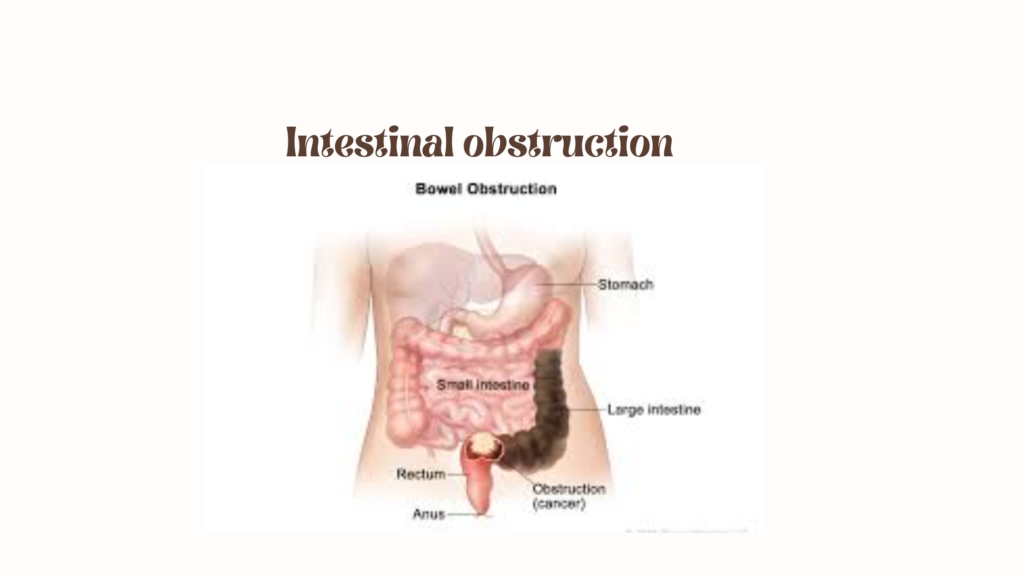Intestinal obstruction is a blockage that prevents the normal flow of contents through the small or large intestine. It can be partial or complete and may lead to serious complications like bowel ischemia or perforation if untreated.
🧬 Pathophysiology
- Mechanical or functional obstruction → buildup of intestinal contents, fluid, and gas proximal to blockage.
- Increased intraluminal pressure → bowel wall edema, compromised blood flow → ischemia, necrosis.
- Distal bowel collapses.
- Can cause perforation and peritonitis.
⚠️ Types of Intestinal Obstruction
| Type | Cause Examples |
|---|---|
| Mechanical | Adhesions, hernias, tumors, volvulus, intussusception, strictures |
| Functional (Ileus) | Postoperative ileus, medications, electrolyte imbalances, infections |
😖 Symptoms
- Abdominal pain (colicky in mechanical)
- Distension
- Nausea and vomiting
- Constipation or inability to pass gas
- High-pitched bowel sounds early; absent later
🧪 Diagnosis
1. Physical Exam
- Abdominal distension, tenderness
- Bowel sounds (hyperactive early, hypoactive later)
- Palpable mass or hernia
2. Imaging
- Abdominal X-ray: dilated loops, air-fluid levels
- CT scan: identifies cause, location, complications
- Contrast studies (gastrografin) in select cases
💊 Management
Initial
- NPO (nothing by mouth)
- IV fluids to correct dehydration and electrolytes
- Nasogastric tube for decompression
- Pain control
Specific treatment depends on cause:
- Surgery: for strangulation, perforation, or failed conservative management
- Non-operative: adhesions without signs of ischemia or perforation
📉 Complications
- Bowel ischemia and necrosis
- Perforation and peritonitis
- Sepsis
- Electrolyte imbalance and dehydration
